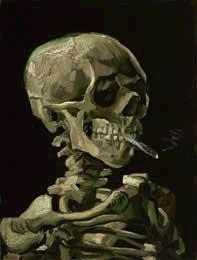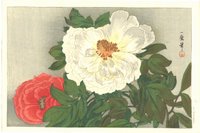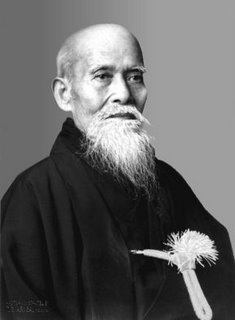My Brain Keeps Hanging Upside DownI’m really feeling like my motivations are without a rudder, though my ambitions are buoyant in a sea of possibilities. That is to say, I’m full of un-channelled passion, seeking someplace to focus and flourish. Intensity is probably both my strongest and detrimental characteristics. It’s a strength insofar as when I find a focus I am committed and totally wrap myself within that particular pursuit. It is detrimental in that I often border on obsession and become either burnt out or disillusioned. My days of playing
Rugby are a testament to this. I went from being a fat kid to a player at the international and professional level over a few years. Added to this was publishing regular contributions to a couple magazines overseas, eating and training seven days per week for
Rugby, reading about
Rugby and talking about
Rugby. Then, one day, I got injured and my
Rugby days came to an end, leaving me with an emptiness that has never been truly filled.
A few years ago I thought that perhaps the
Martial Arts would take spotlight in regards to my passions. It originated with an intense interest in
Eastern philosophy,
Yoga and
meditation. My first
Martial Arts experience, aside from a couple of
Kendo classes that I took while studying French in Quebec, was in
Koga during my core training as a
Correctional Officer. I was brutal, but wanted to learn more as I found the physics of it all fascinating. This lead to brief sojourns into
Judo, Kali Ilustrisimo, Taekwondo and one class in
Aikido where I separated my shoulder. I think that I might have been getting on the right road with
Aikido in regards to my desire to experience a more holistic dimension of
Martial Culture. The other Arts seemed to be more sport oriented which, in my opinion, completely contradicts the “
martial” in “
Martial Arts”.
Kali was an exception, but, because of the weapons focus and the fact that I never carry a knife or stick with me, it just didn’t strike that vein feeding my heart’s passion. Anyway,
Aikido looked like it might have something to offer, I got sidelined by injuries (shoulder followed by a torn hamstring at the gym), then my wife found a group who plays
Netball, which is her passion, and their training night’s are the same as the
Aikido club I was trying out. So, shift work and a shortage of a babysitter for our daughter, I’d rather my missus takes advantage of her passion than me pursue a vague possibility.
It’s hard to make commitments at this stage of life as well. Money isn’t overflowing in our account, I am a shift worker, my wife works 8-4 Monday-Friday, our daughter is enrolled in
swimming and
gymnastics and it’s pretty hard to slide in a regular activity at a specified time and place. I go to the gym when it suits me, as do I sit down with my guitar and books. But to, say, attend such-and-such session at 7pm Tuesday and Thursday evenings is not realistic.
As I mentioned money, that too is a factor as nothing is cheap these days. When I took
Taekwondo, it was just over $100/month. In contrast,
Judo and
Aikido were non-profit groups and cost only $200/year, but didn’t have the flexibility in classes. I look at the stockpile of gear I have from past attempts, including a complete batsman’s equipment for
Cricket,
Taekwondo sparring gear, endless books on
Freemasonry, etc., and shake my head. It almost makes one afraid to start something new!
Recent injuries supporting my final point,
I’m not getting any younger! I honestly thought that there would be this epiphany of a day when my brain would become that of an
adult. I am now 37, but honestly don’t think any differently than I did when I was in my 20’s. I still want to play hard at sport, form a band, backpack around the globe and have an overall bohemian existence. It’s the old punk rocker in me, I know. But a family, a house in the suburbs and a career as a gaoler – man, I sure as hell ain’t in
Kansas any more! When I pick my daughter up at day home and the caregiver tells her that her “
Dad” is here, I have to stop myself from looking and saying “
where?” I mean, isn’t being a
Dad meaning that you’re supposed to know a hell of a lot more than I do? I couldn’t fix a dripping tap or successfully build anything if my life depended upon it! Who ever hear of their
Dad listening to
Sonic Youth and jammin’ out
Lowest of the Low tunes on their guitar? I never had a Dad growing up, so my impressions of Fatherhood were
Ward Clever and
Bill Cosby! My god,
I can’t possibly be qualified to raise children! I remember bantering in High School about the old age homes for my generation (
which of course would never exist because the USSR and USA would’ve nuked the shit out of the planet long before I lost my virginity), where you’d have all these seniors blaring DOA and Ozzy at mega-high decibels to compensate for our hearing losses suffered in our youth (
unless bionic ears really became reality), with the underlying theme really being:
yeah, we’ll mellow and that thing will happen so that we become the pipe smoking, cardigan wearing, classical music aficionados of the elderly of our day.
…but I’ve digressed as I am apt to do.
Perhaps I’m different, or perhaps I’m just like everyone else in that we never really get to see the world or ourselves from any perspective other than our own. So, perhaps we tend to measure life by standards that we don’t totally understand or believe in, though feel that we should because it’s what we think. I know I’ve got a lot of energy flowing about my head, a lot of passion, but just can’t seem to get a handle on it.
Life.












